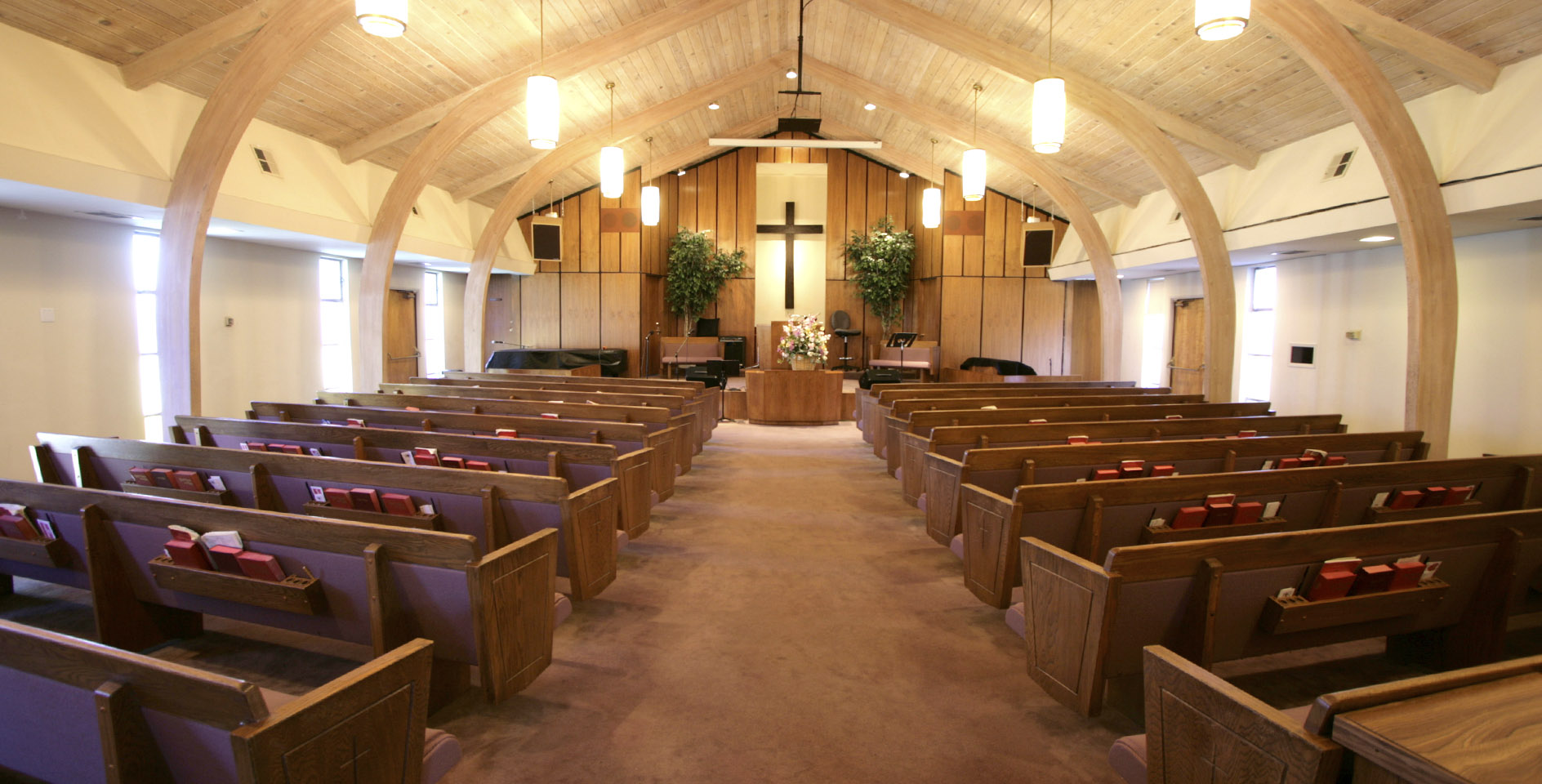A little over a year ago, I plucked my family out of the Land of Enchantment (New Mexico) to return to the great state of Texas. I was having the time of my life as the pastor of a small, thriving church in the middle of nowhere, but as my dad’s health deteriorated, I reached out to a pastor in Texas and said, “Help me find me a church, any church in Dallas/Fort Worth.”
While some may only consider bigger or larger churches, I’ve always gone in the opposite direction, serving progressively smaller churches in almost 23 years of ministry. In a follow-up call, I remember saying, “Bro, there can be 10-20 people; just help me get to DFW.” His reply, however, caught me off guard: “How about DOM of Collin Baptist Association?”
I was speechless for a moment but replied, “I’m 37 years old; I can’t be a DOM.” For those unaware, “DOM,” or “director of missions,” is now called an “associational mission strategist” and used to be called “associational missionary.” If you’re still scratching your head, this role leads the most local level of Southern Baptist Convention cooperation, usually in a county or a few neighboring counties. In fact, according to Ray Gentry, “Even before there was a Southern Baptist Convention, associations were the cornerstone of cooperation among Baptist churches in America.”
Anyway, I had a problem.
I knew of a few exceptions, but I’d only been in churches with older, retired pastors-turned-associational missionaries. They were always incredibly encouraging, but in my ignorance or personal experience, I only saw them as golf buddies, lunch partners, and pulpit suppliers. Well, I’m terrible at golf, and while I love to eat, I didn’t think my calling was to spend my days going from restaurant to restaurant.
So, I said no, but my friend countered that my reluctance to replicate my personal experience, desire to network with churches for church planting, experience in church revitalization, and a heart for encouraging pastors was precisely what his association needed. I nevertheless agreed to pray about it, and he said he would, too.
Before I go on, allow me to provide a caveat. I have nothing against retired pastors serving as directors of missions or associational mission strategists. In fact, I think it’s a great thing! Many have a wealth of experience and wisdom they could provide young pastors starting out, churches going through pastoral transitions, and more. My experience, however, simply led me to my earlier response.
Suffice it to say the association received my resume, and I eventually landed an interview. In my questionnaire and subsequent interviews, I made my feelings pretty straightforward: I believe an association is at its best when it is focused on planting churches, strengthening churches, and encouraging pastors, not just serving as the one-stop spot for pulpit supply, golf outings, or endless meals.
Don’t get me wrong, pulpit supply and fellowship are a part of it; I just didn’t believe they were the heart of it. Before I knew it, our association agreed and called me unanimously. We were on our way to lead the Collin Baptist Association, a network of Southern Baptist churches in Collin County, one of the fastest-growing counties in the nation.
Understanding local associations
In the Southern Baptist Convention, you have local churches all over the country. Most of these fully autonomous churches choose to cooperate with local associations, state conventions, and the national convention. Some may be more or less involved on any level, but in a sense, these operate in concentric circles to ultimately fulfill the Great Commission.
Think about it this way, by way of an example:
- A local church can go door-to-door to evangelize.
- A local association can host revival services in which their churches participate.
- A state convention offers evangelism training or conferences.
- Our SBC entities offer curricula or programs to use.
In other words, the local church aims to advance the Kingdom in their city, the local association aims to help the local churches advance the Kingdom in their county, the state convention aims to help local associations and churches to advance the Kingdom in their state, and all cooperate as the Southern Baptist Convention to advance the Kingdom across the country and around the world.
While there’s more to it, it all comes down to cooperation. One local church can accomplish much for the Kingdom, for certain, but in cooperation with 120? 2000? 40,000? The impact on the Kingdom only grows! Thus, this article on the value of the most local level of Southern Baptist cooperation, the local association. I want to answer two questions:
- What is the value of the local association?
- How can you partner well with an association?
The value of the local association
I realize this may come across as self-serving since I’m an associational missionary trying to tell you there is value in a local association. Still, I truly believe there is significant value for you and your church. For example, when I was the pastor of Mayhill Baptist Church, we gave generously to several missionaries and church plants. Even if we threw all our financial support behind one church planter or missionary, it would fall short of covering their financial needs. However, in cooperation with other churches in our association, we were able to fund these dear saints to advance the Kingdom fully.
In other words, one church can accomplish a lot, but many like-minded churches partnering together can accomplish much more. That’s true of the Cooperative Program, and it’s true for local associations. Our association in New Mexico had an ESL (English as a Second Language) ministry that reached scores of Spanish-speaking immigrants with the good news of Jesus. Where’d the volunteers come from? The local churches in our association. How was it funded? From the generosity of the churches in our association.
I could go on and on about how local churches can do more in their geographical areas by cooperating with like-minded churches in their association, whether through disaster relief, church planting, pregnancy centers, food banks, or evangelistic events, but I think you get the idea. One church can make a difference in the Kingdom, but dozens of churches working together can do so much more.
Additionally, for pastors, we know ministry is awesome, but it can be hard at times. It can be lonely. We can’t always open up about our struggles with one of our church members. One of the things virtually all local associations offer is the opportunity to get together to encourage and be encouraged by fellow pastors. Back in New Mexico, my best friend was the only other pastor we had in our association under 40. We sought and received much wisdom and insight from the pastors with much more experience than us––it was such a blessing.
From working with fellow churches in your area to meet needs and advance the Kingdom to finding mentors and confidants in fellow, like-minded pastors, the value of the local association comes in looking beyond what you can accomplish within and from the four walls of your church. Watch what happens when you link arms with fellow pastors and churches in your area to do more, together.
Partner well with an association
However, you won’t see the value of local associations unless you cooperate with them. My friend J. Allen Murray says, “Cooperation necessitates participation.” We all had those team projects in school where one or two didn’t pull their weight, and local associations can be the same. An association’s value is only as great as the level of participation from the churches in the association.
If you’re a pastor or church member, go to the meetings, go to the fellowships, and reach out to the associational missionary to ask how your church can be a part of what the association is trying to do. Don’t just use the association as the one-stop spot for pulpit supply; see what God is doing in and through your association, and find a way to be a part. If you don’t see anything happening, get involved and make it happen!
Are you skilled at church constitutions and by-laws? Let the associational missionary know you’d love to help if a church wants to rework its governing docs. Are you a whiz with all things audio/video or live stream? Offer to help share your skills with those that need it. Do you have decades upon decades of experience in pastoral ministry? Offer to take the youngest pastor in your association out to eat and become his mentor. Again, I could go on and on, but to see more value in your local association, you need to get involved.
Southern Baptists say we are better together often, and rightfully so. It’s in our DNA. We know it’s the foundation of the Cooperative Program, but it’s also the foundation of our local churches, local associations, state conventions, and the family of churches we call the Southern Baptist Convention. But remember, cooperation necessitates participation––give your local association a try, pour into it, and let it pour into you. If you do, I suspect you’ll join me as the world’s biggest fan of the most local, practical level of cooperation in the Southern Baptist Convention.










